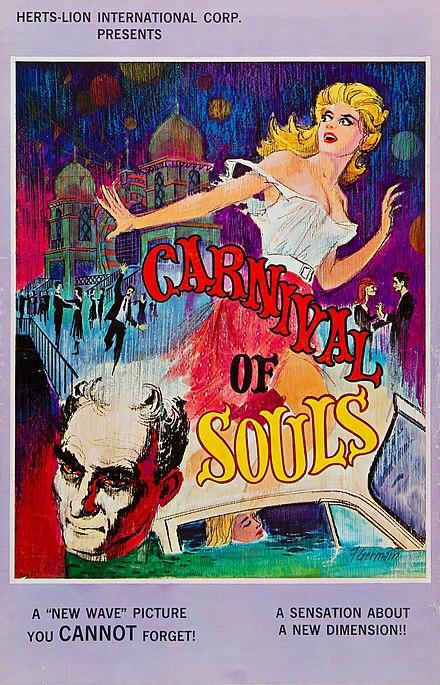Carnival of Souls has been receiving renewed attention of late, so I decided to watch it again to see if I’d missed something the first time. Indeed, I had. Carnival of Souls is one of those low-budget movies that was really never considered worth much until reevaluation started to take place several years after it was released (1962). As a snapshot of an era, it offers a view of how horror and religion interact. The story, in case you’re unfamiliar, follows Mary Henry, a young woman who’s a professional organist. Even here a few things stand out. She went to college, she relies on no man to support her. And she views church work, as an organist, to be “just a job.” This is pretty incredible on its own, but I’m getting ahead of myself. Her car is nudged off a narrow bridge by a couple of guys out hot-rodding.

From the beginning the viewer is clued in that she drowned, although this isn’t made explicit until the end. She makes her way to Salt Lake City where she’s been offered a job as an organist in an Episcopal church. She “sees dead people” and becomes fascinated by an abandoned carnival on the shore of the Great Salt Lake. The priest at first notes that she plays music to elevate the soul. Later, however, after the dead man she keeps seeing unnerves her, she plays eerie music on the church organ (during practice) and the priest realizes that she’s not a believer. He fires her on the spot. Apart from getting the ethos of the Episcopal Church about right, this in itself is interesting. The playing of creepy music is enough to lead to the loss of a church job.
John, the guy who won’t stop trying to score with her, wonders at one point if viewing church work as “just a job” doesn’t give her nightmares. These attitudes, from only about six decades ago, seem terribly remote by today’s standards. Many clergy have doubts about their faith. Many don’t really believe what their church actually proclaims. The movie shows a society that has an almost magical view of the church. You can probably even take the “almost” out of that last sentence. While the Bible’s not mentioned or quoted, the idea of a lost soul finding no home in the church is a telling bit of commentary. Intentional or not. Carnival of Souls will never be my favorite horror movie, but it has pre-echoes of Night of the Living Dead and a sincerity that invites consideration. I can see why it’s gained renewed interest.
